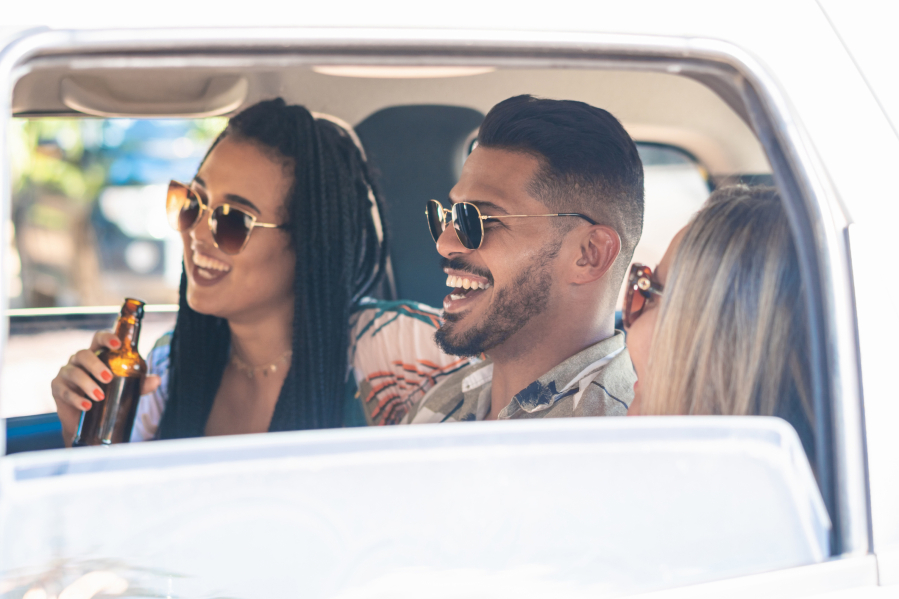Driving under the influence of alcohol is illegal, but what is the law regarding vehicle passengers with alcohol?
With Labor Day weekend approaching, the Washington State Patrol is working to crack down on dangerous driving, like speeding and drunk driving. For the past five years, June 9 through September 7 has been the deadliest 90-day stretch on Washington roads, according to WSP. The WSP “Surviving Summer” campaign includes increased patrols and public announcements urging safe driving.
According to WSP, those 90 days account for 31% of traffic deaths in Washington. In 2022, 38% of the collisions during that time involved impairment.
However, what if you’re found drinking alcohol in a car, but your driver has not had a drop? How can you expect a Washington State trooper to react?
Here’s what the law says.
Washington open container laws
The Revised Code of Washington states it is a traffic infraction to drink alcohol in a vehicle on the highway. Even if you aren’t actively drinking, it’s still illegal. You cannot have an open container with an alcoholic beverage in a vehicle on Washington highways.
What counts as an open container? The state law describes it as “a bottle, can, or other receptacle containing an alcoholic beverage if the container has been opened or a seal broken or the contents partially removed.”
Passengers with an open container will be responsible for this infraction, not the driver. But it is a primary violation, meaning you can get pulled over for open containers. While troopers are on patrol over Labor Day weekend, they will pull over cars exhibiting concerning behaviors, stated WSP Trooper Chris Thorson in an interview.
Concerning behaviors include speed, following too closely, impaired and distracted driving. But other infractions, like passengers drinking or smoking in the car, are considered concerning as well.
Additionally, you cannot keep an open container in the car unless it is kept somewhere not normally occupied by passengers, like the trunk. This means opened drinks cannot be kept in the glove or utility compartment “for later.” This infraction falls on the registered owner of the car, or the driver if the registered owner is not present.
It is an additional infraction to try and disguise an alcoholic beverage in order to get around this state code.
These traffic infractions come with a fine of $136.
If minors are involved in any of the aforementioned infractions, there is potential for an additional charge for a Minor in Possession of Alcohol. This is assessed on a case-by-case basis, according to Thorson.
Open container law exceptions
- There are some exceptions to this, however. The code does not apply for open containers:
- In public services commercially chartered for group use, like a party bus
- In the living quarters of motors homes or campers
- With passengers in a licensed for-hire vehicle (not rideshares), like a limousine
When a privately-owned vehicle is driven by a licensed employee under normal work conditions, like a cart girl
Counties within Washington may have their own provisions regarding open containers on public and private roads.




